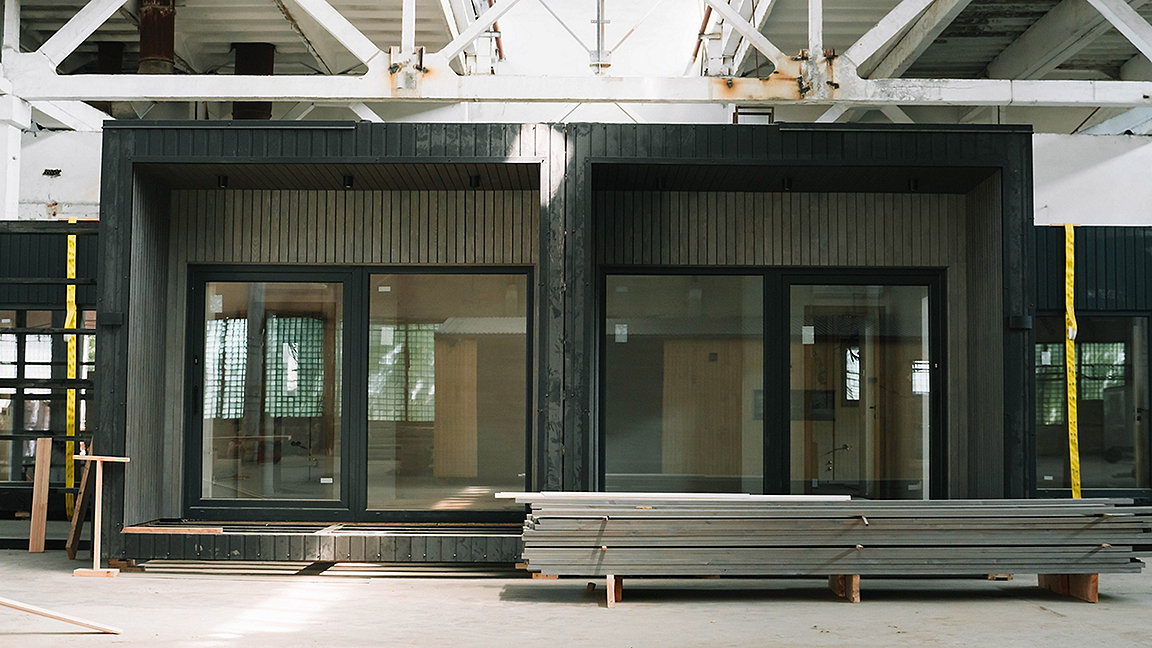
The housing crisis and asbestos are among perennial concerns in the property sector – yet looking back at the year gone by there have also been positive developments in a number of areas.
Our second piece reflecting on 2023 therefore revisits articles on housebuilding, discounted cash flow (DCF) valuation, healthy buildings and digital connectivity – trends that reflect key recommendations in RICS' recent manifesto.
Created in collaboration with RICS members, the manifesto sets out a comprehensive strategy to tackle the numerous challenges facing the UK's built and natural environments. Its ten-point roadmap aims at the creation of safe, sustainable and affordable communities, which echoes RICS' public interest remit.
Identifying problems and solutions in housebuilding
From the UK's chronic shortage of accessible homes to renewed calls for residential decarbonisation and improved tenement maintenance, housing has been a regular talking point this year.
In September, Dr James L. Broun of Make UK Modular outlined how modern methods of construction – especially modular approaches – are enabling housebuilders to overcome supply and labour issues affecting traditional on-site building.
With a pressing need for greener, cost-effective housing in large quantities, the modular sector could become a key player in meeting that demand, he proposed.
'Modular has emerged in housebuilding because of its ability to bypass labour and skills shortages in traditional building, its capacity to provide affordable, greener homes, and its benefits in terms of quality and speed'
New guidance clarifies DCF valuation

In view of RICS' publication of new practice information on using explicit DCF valuations for investment property, lead author Prof. Neil Crosby MRICS offered additional context in an article for Property Journal.
The new publication goes further than previous DCF guidance, he emphasised, in that it has separate chapters on market value and investment value. While not mandatory for members, the guidance is designed to 'complement and not compete with existing practice' where the DCF model is used as standard for market valuations.
Healthy buildings prioritised in construction and renovation
Among its other publications, RICS recently partnered with Ekkist, the UK's first health and well-being consultancy for the built environment, on practice information for designing, constructing and managing healthier buildings.
Our work to support members in this area has already begun, as reflected in articles on innovative retirement communities and improving accessibility and inclusivity in the public realm.
The assessment and management of the UK's existing building stock, however, remains a critical task for regulators and built environment professionals. For example, as Jeffrey Tribich MRICS reported in September, a lack of knowledge of procedures and legal requirements around asbestos persists among professionals and clients.
But RICS continues to work with members to promote greater understanding and awareness of the risks and responsibilities.
'A landmark report analysing UK asbestos management data was published last November – to a less than fulsome reception'
Be alert to data advances to reap benefits

In the year RICS became a founding member of the Digital Property Market Steering Group, we kept members abreast of key data and technology trends in the sector.
For Prof. Björn-Martin Kurzrock of University of Kaiserslautern-Landau, maintaining a competitive advantage in real estate will increasingly depend on access to high-quality data and information. Those who adapt to machine learning, digital workflows and common data environments, he argued, will embrace the benefits in future.
In the new year, publication of Property Journal resumes with coverage of these and other topics, including Basel 3.1 and its implications for RICS members, valuation software, IPMS3 and IPMS4, and an A–Z of inclusive environments for APC.
Adam Bell is residential property editor of Property Journal
Contact Adam: Email | LinkedIn
Patrick McGauley is commercial property editor of Property Journal
Contact Patrick: Email | LinkedIn
Property Journal
The RICS UK Awards are free to enter, and recognise outstanding achievement, teamwork, and companies in the property sector.
As part of our ongoing commitment to raise the profile of industry professionals and teams, the Awards aim to demonstrate the positive impact that the built environment has on individuals and communities, while also promoting the role that the profession has in making projects a reality.
Property awards
- The Commercial Development award is for any commercial property development or initiative whether retail, office, industrial or mixed-use.
- The Residential Development category covers residential developments of either a single building or overall project, new build or conversion.

